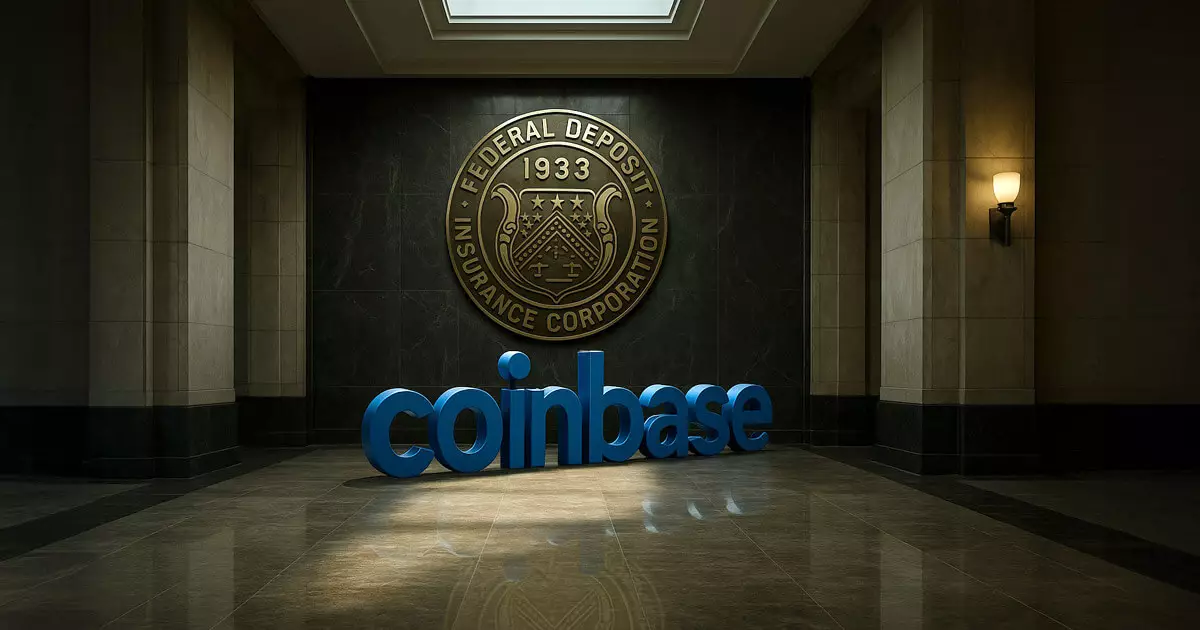In a striking example of bureaucracy grinding against innovation, Coinbase has vehemently challenged the Federal Deposit Insurance Corporation’s (FDIC) latest maneuver to delay the release of documents tied to the controversial practice of debanking crypto firms—a tactic that some argue threatens the very fabric of financial innovation. On April 10, Coinbase’s Chief Legal Officer, Paul Grewal, dismissed the FDIC’s plea for a 16-day extension as “absurd,” highlighting an unsettling reality: regulatory agencies, which should serve as catalysts for financial progress, are often bogged down by their own inefficiencies.
This contentious legal struggle touches on a broader narrative that raises questions about governmental overreach and the constricting grip of regulatory frameworks. By submitting a 13-page document merely for the sake of additional time, the FDIC seems to portray an image of hesitation and incompetence. When an authority responsible for overseeing financial institutions requires extra time to figure out if it needs additional time, one cannot help but feel concerned about the efficacy of their oversight.
The Implications of Censorship
Coinbase claims that the heavily redacted materials provided by the FDIC do little more than cover up the agency’s questionable actions. Such excessive censorship breeds distrust among regulatory authorities and those they govern, particularly in the rapidly evolving cryptocurrency sector. If regulators prioritize opacity over transparency, they risk complicating an already intricate landscape where innovation is often met with intimidation.
The FDIC’s apparent struggle to meet Freedom of Information Act (FOIA) obligations may foster a chilling effect on the burgeoning crypto industry, which thrives on transparency and open dialogue. For Coinbase and many stakeholders in the digital asset space, the border between protection and oppression has blurred, prompting a need for deeper scrutiny of regulatory policies that threaten financial experimentation.
The Bigger Picture
Coinbase’s fight against FDIC’s stalling tactics transcends mere legal disputes; it embodies a collective quest for accountability in a system that has increasingly shown signs of resisting the evolution of finance. Earlier court-ordered disclosures unveiled evidence indicating that the FDIC pressured banks to disassociate from digital asset companies, framing them as high-risk entities. Such actions speak volumes about an agency that appears to operate under a veil of protective paternalism rather than embracing the potential benefits of financial technology.
Time and again, the US government has sent mixed signals regarding the acceptance of cryptocurrencies. The standoff with the FDIC accentuates the need for a cohesive approach rather than piecemeal reactions to societal and technological advancements. For Coinbase, this legal battle is not merely about document retrieval; it is a larger endeavor to shed light on the often invisible mechanisms by which government regulatory actions can imperil the growth of the financial sector.
The stakes have never been higher. As the crypto community rallies behind Coinbase’s efforts for transparency, the ramifications of this legal showdown could ultimately shape the future regulatory landscape. It serves as a poignant reminder that institutional accountability is not just desirable; it is essential for fostering an environment where innovation can flourish unimpeded.


Leave a Reply